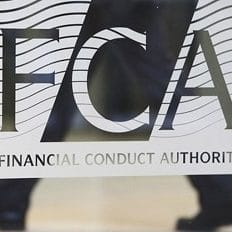
FCA: Success will be wiping out targeted claims
The Financial Conduct Authority (FCA) is going ahead with a tougher version of a ban on ‘phoenixing’ by financial services claims management companies (CMCs), which will come into force next month.
‘Phoenixing’ in this context is when individuals from wound-up financial services firms reappear at CMCs and charge consumers for seeking compensation from the Financial Services Compensation Scheme for their former firms’ poor conduct.
The FCA estimates that at least 220 claims on the scheme are made each year by CMCs that include people who fall into this category.
Data published with a consultation last year identified 1,319 claims where phoenixing appeared to have occurred over about six years – there were 117 people who had been directors or employees of the financial services firm their CMC was taking action over.
It paid out £22.2m on them and the FCA estimated that consumers would have paid fees of £4.5m to the CMCs.
A final policy statement published this week said that, from 7 July, CMCs would be banned from handling claims where they have a “relevant connection” to the claim.
The ban applies to any employee or controller of a CMC or member of its governing body who was directly involved in or responsible for managing the financial services activity that is the subject of the claim.
As a result of the consultation, it now also extends to any controller or member of the CMC’s governing body related to a person directly involved in or responsible for managing the activity that is the subject of the claim.
A further restriction is put on CMCs or members of governing bodies who have agreed to “transfer a financial benefit” to a person directly involved in the activity.
CMCs will be required to notify the FCA of any financial services activity carried out by any employee, controller or governing body member.
They will also have to notify the regulator about any controller or governing body member related to anyone who is or was involved in financial services.
The FCA said the ban would be successful if, within two years of it coming into force, the number of regulated CMCs submitting compensation claims to the FSCS “with which they have a relevant connection” was zero.
The regulator has estimated that of the 250 financial services CMCs it regulates, at least 18 (7%) have “known connections” to former financial services firms, which “could allow individuals from those firms to benefit from the firms’ poor conduct”.
The new rules would address a “particularly egregious type of phoenixing” and did not replace or make redundant its “rigorous gateway checks” to keep individuals out of the FCA “perimeter” where they were seeking to evade responsibility for past failures.
Respondents to the consultation were described as “generally very supportive”, with only one opposing the ban.
Some respondents argued that the scope of the ban should be widened to include relatives of employees and not just controllers as relevant connections.
However, the FCA said that, as “significant shareholders”, controllers were the ones likely to benefit if the CMC managed claims with which they were connected and adding categories of relatives would make the ban too restrictive.
“Overall we feel our rules strike the right balance between capturing the CMCs that are causing the most egregious harm and unfairly preventing CMCs from managing claims where no benefit flows.”
Some respondents warned the FCA to “watch out for any increase in claims management phoenixing in the run-up to the rules coming into force”.
Others felt the Solicitors Regulation Authority (SRA) should adopt a “consistent approach and were keen to understand how the regimes would align”.
The FCA replied that it has discussed the new rules with the SRA to “help minimise consumer harm that may be caused by any differences between regulatory regimes for claims management activity”.
The regulator said the SRA’s application process for financial services firms required them to provide information about current or prior connections with CMCs.
Matthew Maxwell Scott, executive director of the Association of Consumer Support Organisations (ACSO), backed the statement and said: “We hope this action will help to restore public trust in the industry, which makes an important contribution to the defence of consumer rights.
“ACSO and its members will continue to work with the regulator to champion the highest possible standards of service and compliance in the claims sector.”














Leave a Comment